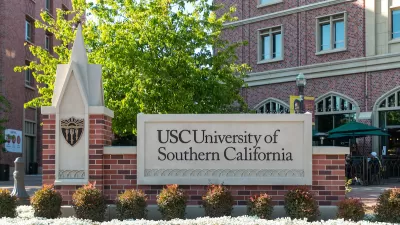George Skelton of The Los Angeles Times contends that one of Schwarzenegger's biggest blunders as governor of California was lowering the vehicle license fee to 0.65%.
The vehicle license fee, or "car tax", fluctuated between 1.3% to 2% since it was first introduced in 1935. When Schwarzenegger took office in 2003 at the height of the SUV craze, he slashed the rate down to 0.65%. Skelton writes that it was a politically expedient move that did irreparable damages to the state's economy.
"Problem was, virtually all the vehicle license revenue went to local governments. The state had been reimbursing them - 'backfilling' in Sacramento jargon - for their losses after the rate had sunk below 2%. Schwarzenegger insisted on continuing to backfill even though the state was going broke. His tax cut actually went on the books as a spending increase. Schwarzenegger's solution: Put it on the credit card. The state's still trying to pay it off. The largess for local government was costing $4 billion annually then. Now, it's up to $6 billion - roughly the size of the state's ongoing 'structural' deficit," he elaborates.
While there is talk in Sacramento to raise the fee to 1.15% through a ballot initiative next year, the prospect of voters approving a tax increase is slim. Skelton asserts, "Californians think that ludicrously low car taxes - and all property taxes - are their birthright."
FULL STORY: Californians are paying a high price for a low car tax

Maui's Vacation Rental Debate Turns Ugly
Verbal attacks, misinformation campaigns and fistfights plague a high-stakes debate to convert thousands of vacation rentals into long-term housing.

Planetizen Federal Action Tracker
A weekly monitor of how Trump’s orders and actions are impacting planners and planning in America.

San Francisco Suspends Traffic Calming Amidst Record Deaths
Citing “a challenging fiscal landscape,” the city will cease the program on the heels of 42 traffic deaths, including 24 pedestrians.

Defunct Pittsburgh Power Plant to Become Residential Tower
A decommissioned steam heat plant will be redeveloped into almost 100 affordable housing units.

Trump Prompts Restructuring of Transportation Research Board in “Unprecedented Overreach”
The TRB has eliminated more than half of its committees including those focused on climate, equity, and cities.

Amtrak Rolls Out New Orleans to Alabama “Mardi Gras” Train
The new service will operate morning and evening departures between Mobile and New Orleans.
Urban Design for Planners 1: Software Tools
This six-course series explores essential urban design concepts using open source software and equips planners with the tools they need to participate fully in the urban design process.
Planning for Universal Design
Learn the tools for implementing Universal Design in planning regulations.
Heyer Gruel & Associates PA
JM Goldson LLC
Custer County Colorado
City of Camden Redevelopment Agency
City of Astoria
Transportation Research & Education Center (TREC) at Portland State University
Jefferson Parish Government
Camden Redevelopment Agency
City of Claremont





























